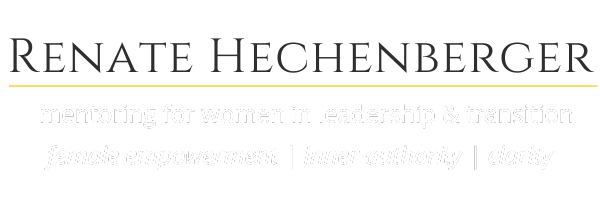Why “Confidence” Isn’t Enough for Women Who Lead
I. The Hidden Cost of Playing Small
I still remember the sound of silence in my hotel room in Gifu, Japan. It was 1997. No WhatsApp. No social media. No easy lifelines to reach across continents for support. Just a landline phone with a delay on the international line — and the full weight of a new leadership position resting on my shoulders.
I was one of only two women in a regional director role for a major hotel chain across the Asia-Pacific region. A white woman. Alone in boardrooms. This time in Japan. Alone in hotel suites. Alone in cultures where authority was expected to look very different from me.
And while the title looked powerful on paper, the experience felt anything but.
There was no roadmap for what I was navigating: auditing hotels that didn’t want to see me to begin with — it felt like I was the visiting IRS. Managing the cultural minefields of being seen as an outsider, and carrying the unspoken burden of representing not just myself, but all women in leadership. Every decision felt loaded. Every interaction carried the silent question:
Does she belong here?
Looking back, I now see how much energy went into shrinking what I knew, softening how I spoke, performing competence without appearing threatening. Not because I lacked vision, strength, or capacity — but because I, like so many women, had been conditioned to stay within the boundaries of what wouldn’t disrupt the comfort of others.
I was told by my boss to make sure the General Managers of the hotels “didn’t lose face”; to be diplomatic, not outspoken; to avoid being difficult or opinionated — because my reputation had preceded me.
And here’s the real cost of dialing down:
We silence our bolder truth.
We sand down our edges.
We edit our presence.
We convince ourselves that maybe we need just a bit more experience before we ask for what we really want. That maybe we should wait to be invited. That maybe being underestimated is safer than being fully seen.
That maybe — just maybe — magic will happen, and we’ll be recognized for who we truly are.
This is the invisible toll of playing small.
It doesn’t just affect our careers — it impacts our bodies, our nervous systems, our joy, our relationships. It fragments our sense of self and teaches us to seek safety in being less.
But here’s what I’ve learned:
No system, no industry, no world will ever grant you full permission to be powerful — especially as a woman.
That permission must come from within.
And that’s where the real shift begins.
II. Confidence Is Not the Cure
We’re told the problem is confidence.
That if women would just speak up more, lean in harder, ask louder — the playing field would somehow correct itself.
But I’ve mentored enough high-achieving women to know this: it’s not a lack of confidence that holds them back. It’s the internalized cost of being visible. Of being powerful. Of stepping outside the lines of what’s culturally comfortable.
The real barrier isn’t self-doubt — it’s the very real awareness of what power tends to provoke.
Because for women, showing up fully doesn’t always lead to reward. It can trigger backlash. Judgment. Isolation. We know this not just intellectually — we feel it viscerally. From boardrooms to classrooms, women who dare to want more (or even appear to) are often met with scrutiny instead of support — sometimes even from other women.
In this context, confidence becomes a brittle shield. It’s not enough to override the deeper scripts we’ve inherited:
“Don’t be too much.”
“Don’t be too loud.”
“Don’t make others uncomfortable.”
These aren’t mindset issues. These are survival strategies.
So what’s the real cure?
It’s not about getting louder.
It’s about getting rooted.
It’s about cultivating self-leadership so strong, so centered, so deeply embodied that we no longer need to be liked in order to stay in our truth.
Self-leadership means:
- We stop outsourcing our worth.
- We stop asking for permission.
- We stop adjusting ourselves to fit into rooms never designed for our presence.
And we begin to lead — not from borrowed authority, but from the clarity of who we are and what we stand for.
That is the new power code.
It’s not just an upgrade. It’s a necessity.
III. The Discomfort of Visibility
To be seen is one thing.
To let yourself be seen — is another.
Visibility sounds empowering in theory. But for many women, it activates ancient fears: of being judged, rejected, misunderstood — or worst of all, punished for being too much.
This fear isn’t imagined.
It’s embedded in collective memory.
Women who took up too much space, too much voice, too much power — have historically paid a high price.
And that memory still lives in our bodies.
That’s why visibility can feel physically uncomfortable. The nervous system registers it as exposure. Risk. Vulnerability.
And yet:
Visibility is the price of impact.
You can’t influence from the shadows.
You can’t lead from behind the curtain.
You can’t claim your full potential while hiding parts of yourself.
This is the paradox of power:
To live fully expressed, you must build the capacity to sit with discomfort.
The discomfort of being misunderstood.
The discomfort of being too much.
The discomfort of knowing your truth may disrupt someone else’s narrative.
And let’s not forget the pressure around appearance:
Are we pretty enough? Slim enough? Polished enough? The right clothes, shoes, makeup?
Somewhere along the way, power got entangled with presentation.
From an early age, we’re told — explicitly or implicitly — that beauty is currency.
No beauty, no power. That’s the ironclad rule.
I remember a job interview for a senior role — not even the top job, just second in command.
I was slightly overweight due to a medical condition.
One interviewer looked at me and asked:
“How do you think you will manage an entire business when you can’t even manage your own body?”
It was brutal. Demeaning.
I didn’t just want to hide — I wanted to vanish.
This is what many women carry:
The shame of being visible in a body that doesn’t conform.
The grief of knowing your brilliance might be overshadowed by someone’s perception of your looks.
The exhaustion of constantly translating yourself into something more “acceptable.”
But here’s what I know:
The women who change the world are not the ones who play safe.
They are the ones who stand in the fire of visibility — not because it’s easy, but because it’s real.
IV. Self-Leadership: The Feminine Way
True self-leadership isn’t about fixing yourself.
It’s about remembering who you were before the world told you to shrink.
It’s not about striving harder.
It’s about returning deeper — to your essence, your rhythm, your truth.
The feminine way of leading doesn’t replicate patriarchal models with a softer tone.
It redefines the whole field.
It centers presence over performance, intuition over domination, resonance over noise.
Feminine self-leadership is not performative.
It’s embodied.
It’s the quiet power of knowing who you are — and refusing to betray that knowing, even when it would be easier to conform.
It’s the willingness to hold space for contradiction:
– To be ambitious and empathetic.
– Visionary and vulnerable.
– Strategic and soft.
This is not weakness.
This is range.
In my work with high-level women, I witness the moment a woman reclaims her sovereignty.
It’s not dramatic. It’s subtle.
A shift in posture.
A breath.
A refusal to apologize for clarity.
This is the power I teach — and walk with:
– To envision without apology
– To speak desires without shame
– To ask without shrinking
– To charge without guilt
– To hold space for power without self-censorship
This isn’t about becoming someone else.
It’s about returning to the most unedited version of you — and leading from there.
And that, in this time, is not just revolutionary.
It’s essential.
V. Redefining Power in Real Time
If feminine leadership is evolving, then our definition of power must evolve too.
For too long, power has been defined in masculine, extractive terms: control, dominance, invulnerability.
But that version is brittle.
It demands sacrifice without reciprocity.
It extracts obedience rather than cultivating allegiance.
Women are being called to create a new model:
One rooted in connection, clarity, and conscious choice.
To lead with feminine power is not to be less powerful — it is to be powerful in a way that transforms the room, not conquers it.
This kind of power:
– Listens before it speaks
– Acts from alignment, not urgency
– Sets boundaries that serve all, not just the system
– Honors intuition as much as intellect
It’s not about being liked — but being aligned.
Not about being feared — but being felt.
Not about owning the table — but redesigning the room.
This is what strength looks like now:
Not how much you can suppress or endure — but how fully you can lead without abandoning yourself.
We stop chasing credibility.
We anchor in our own authority.
We take up space — not to prove a point, but to embody a truth.
We stop waiting for systems to change — and we change how we show up.
We become the shift.
In real time. In real rooms. In real leadership.
VI. The Practice
This kind of power isn’t gifted.
It’s grown.
And like anything that grows, it needs the right conditions:
Safety. Nourishment. Space. Attention.
Self-leadership begins when we stop performing — and start listening.
Inward, not outward.
Here are the practices I teach:
– Name the inner script. What’s the voice that keeps you small? Where did it come from?
– Anchor in your truth. What’s true about you, beyond roles and titles?
– Expand your capacity for visibility. Practice being seen. Watch your nervous system.
– Speak the unspeakable. Whisper it. Write it. Say it. It breaks the spell.
– Invest in power-affirming spaces. People who see the woman you’re becoming.
– Practice radical self-honoring. Rest. Say no. Celebrate loyalty to yourself.
These aren’t hacks. They’re holy acts.
Over time, they rewire your relationship to power — from something performed to something embodied.
Because real leadership?
It doesn’t start in the boardroom.
It starts in the mirror.
VII. The Cultural Ripple
When one woman rises, she lifts others with her.
Every time you:
– Say what you mean — without softening it
– Set a boundary — and hold it with grace
– Ask your worth — without apology
– Let yourself be seen — even trembling
You shift culture.
Because culture doesn’t only change through systems.
It changes through embodiment.
This is the work.
Not just for you — but for those who came before.
And for those who will follow.
As we redefine what power feels like — with presence, with voice, with truth —
we create a world where power no longer demands distortion…
but invites wholeness.
And that ripple begins with one choice:
To lead yourself — fully, fiercely, and unapologetically.
From there, everything changes.
© 07/25 Renate Hechenberger. Alle Rechte Vorbehalten.
Foto credit: shutterstock_53864131.jpg

